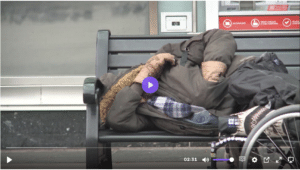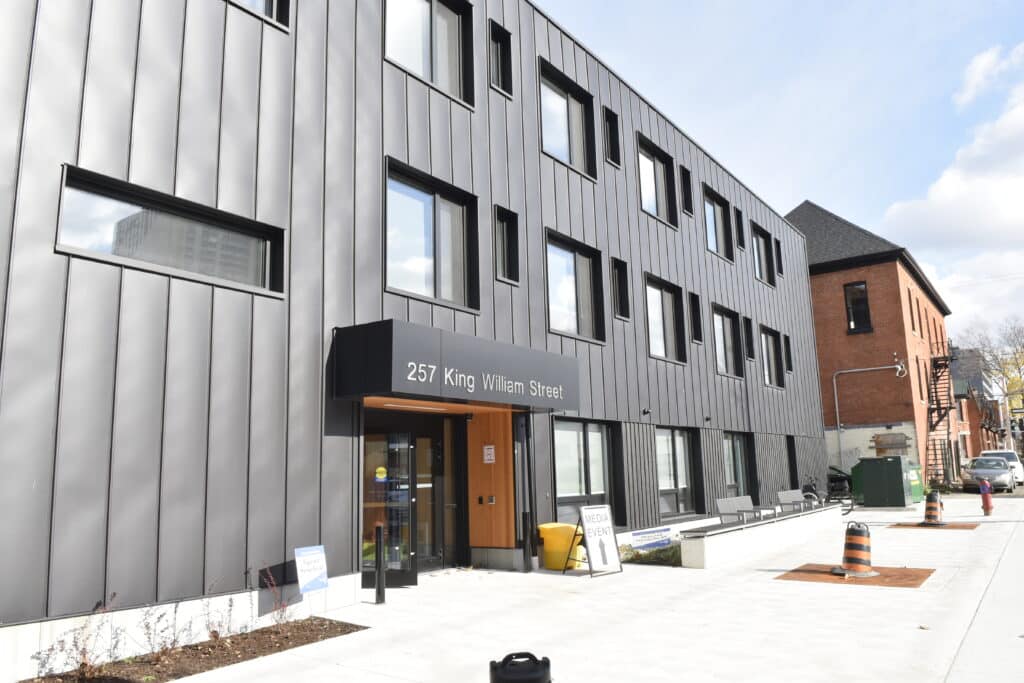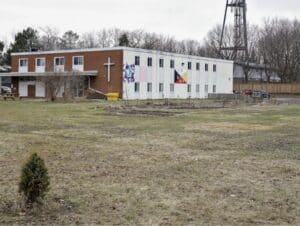King William Flats in Hamilton, with 24 units of supportive, affordable housing, opened in November 2024. The building is owned by CityHousing Hamilton and operated by Indwell with an enhanced level of support in place for residents, with the goal of housing people facing systemic barriers to stable housing.
“One resident had been living in an encampment for eight years.”
Every person who lives at King William Flats came directly out of chronic homelessness, some going back and forth between shelters, encampments, hospitals, or other precarious housing. One resident had been living in an encampment for eight years. Residents experience a variety of mental health issues and/or addiction, which makes a high level of staff support vital to their success. After chronic homelessness, people often need to learn skills that many take for granted, even something as simple as locking their door.
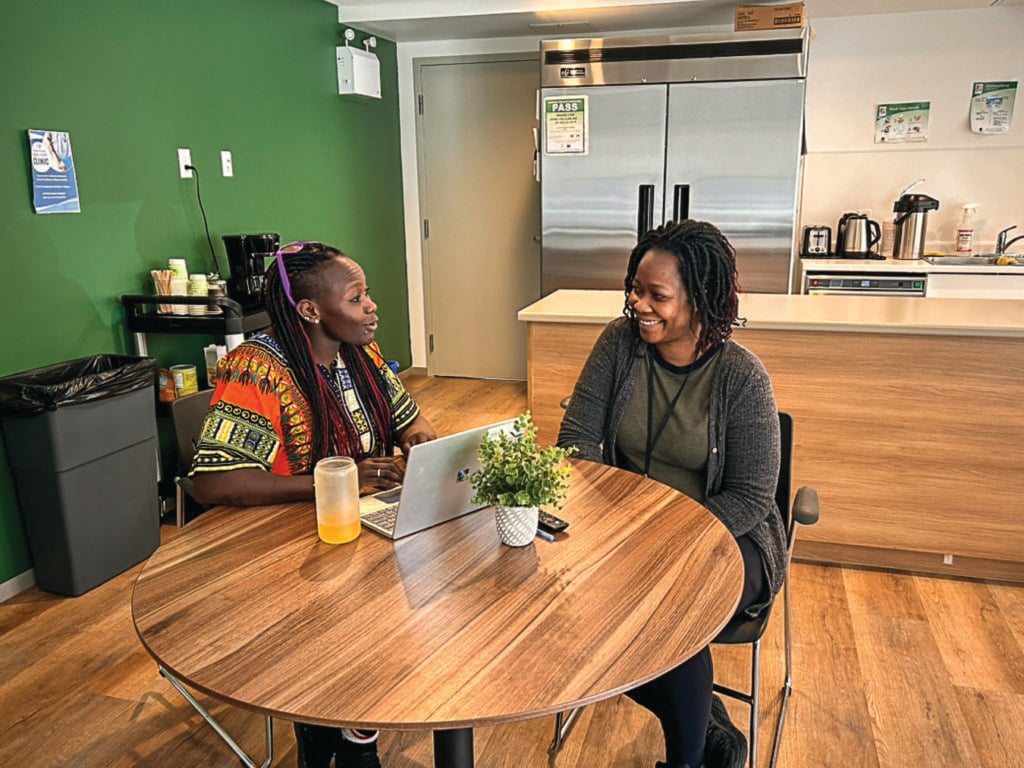
Yvonne Onyango, Housing Support Team Lead, says, “It’s like starting over again. How do I keep my home safe? How do I keep it clean? How do I manage the stove?”
Enhanced levels of support offered at King William Flats include access to daily hot meals, medication supports, and help with accessing community resources like psychiatrists, family doctors, and food banks.
Often after moving in, residents face challenges of feeling isolated, trusting staff and other residents. Their housing doesn’t feel permanent. One resident didn’t want to sleep in her new apartment because she was worried about her community, her “chosen family” at the encampment — it took 2-3 months for her to actually start sleeping in her new home.
Tenants have often felt stigmatized by care providers in the past and benefit from having staff advocate for their care. For example, residents who struggle with addiction don’t initially want to ask for harm reduction supplies or addiction support because they fear the stigma they faced in the past — they worry about “getting in trouble.” It takes consistent effort from staff to build enough trust that residents feel comfortable accessing what they need. One major milestone involved a resident allowing his picture to be taken so he could finally have his own health card.
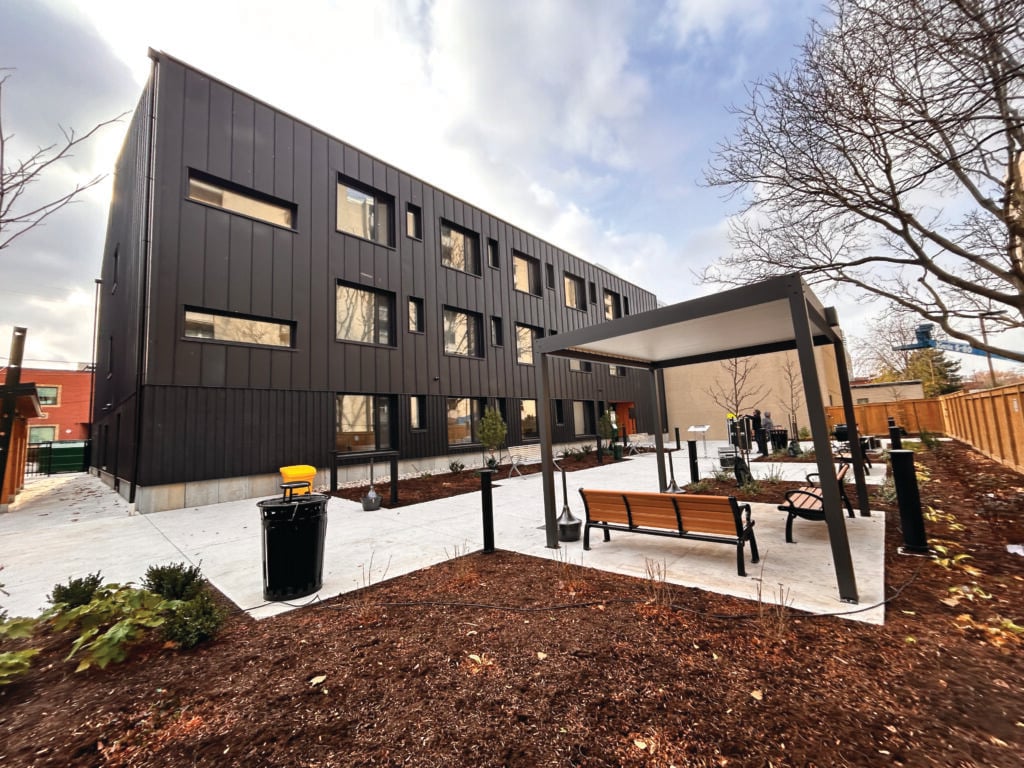
Johnette shares that one of their biggest successes has been securing much-needed psychiatric assessments for many residents, an important step in helping people “separate mental health from who they are” and allowing each person to feel more normal and accepted.
Staff have noticed many positive changes such as residents joining programming groups and improved cleanliness in their homes.
Yvonne, who has worked with unhoused people for various organizations before coming to Indwell, relates, “When folks were housed in a subsidized home without supports, most went back to homelessness within three months.”
She went on to say that the majority of the original residents still live at King William Flats after their first six months because of the supports we provide.
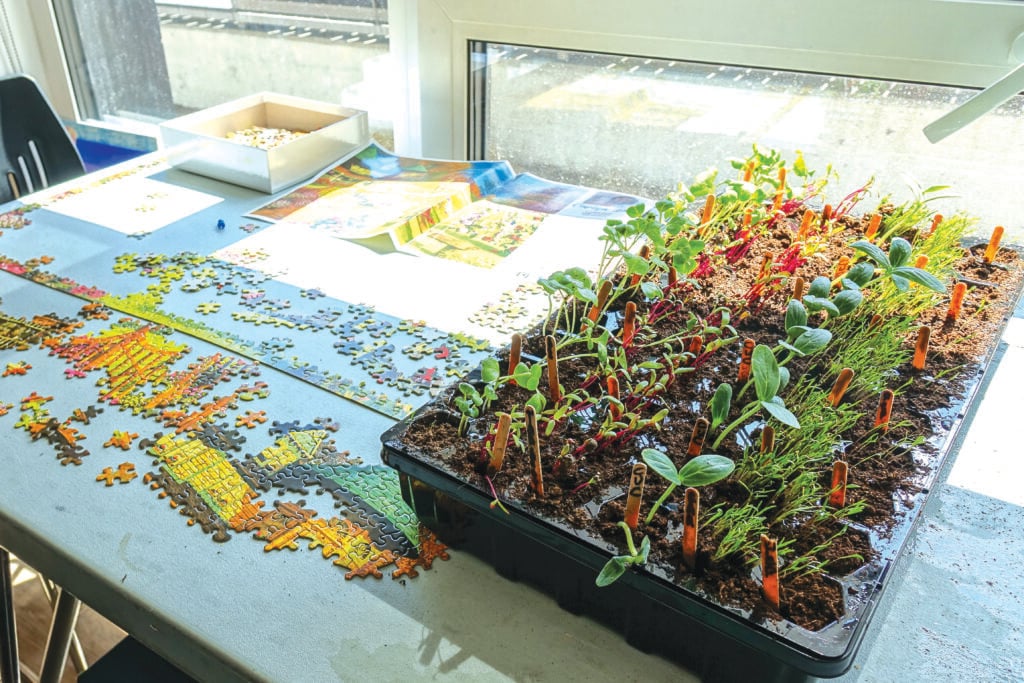
To support initiatives like gardening at King William Flats and other Indwell programs, visit indwell.ca/gifts-of-hope.
